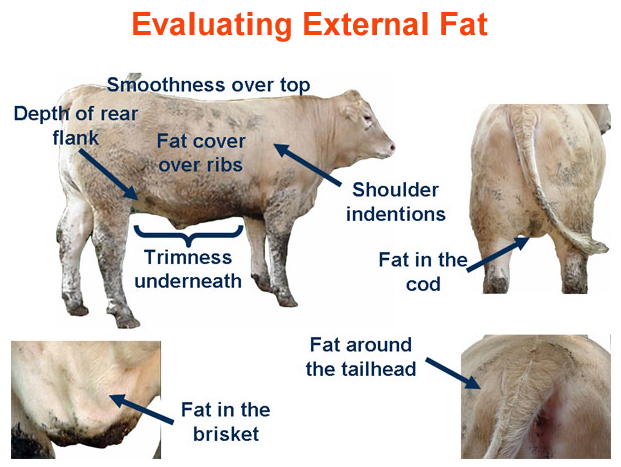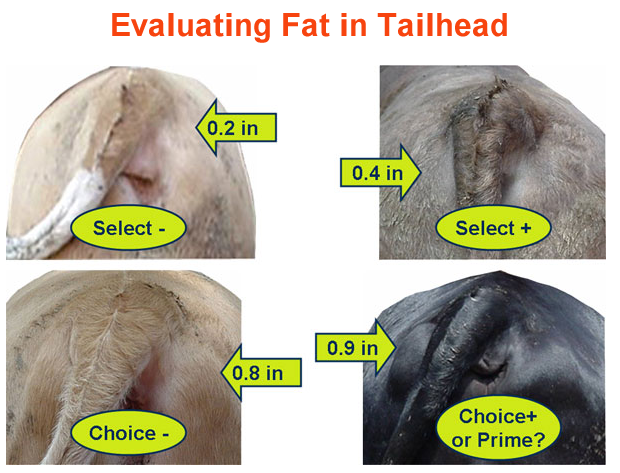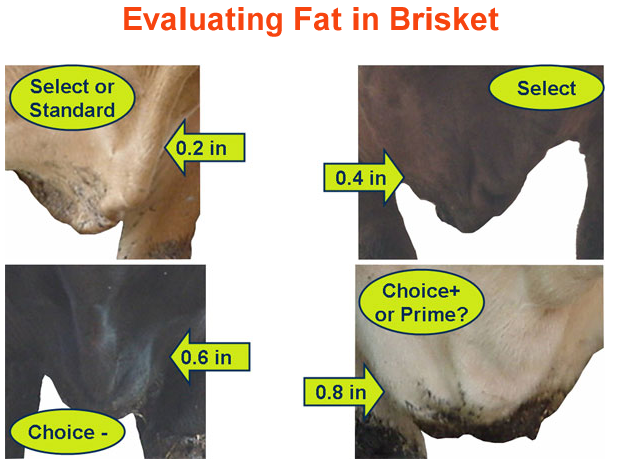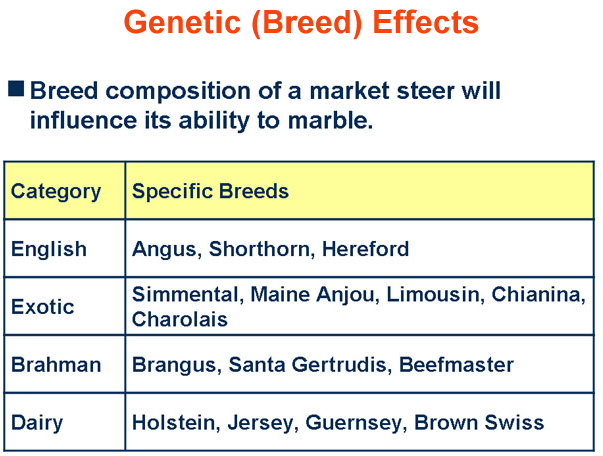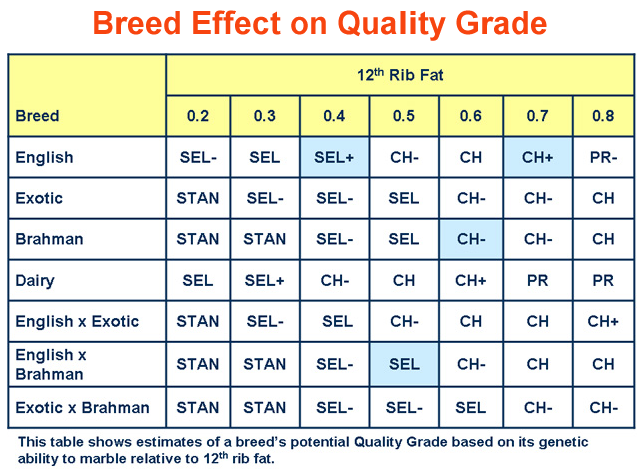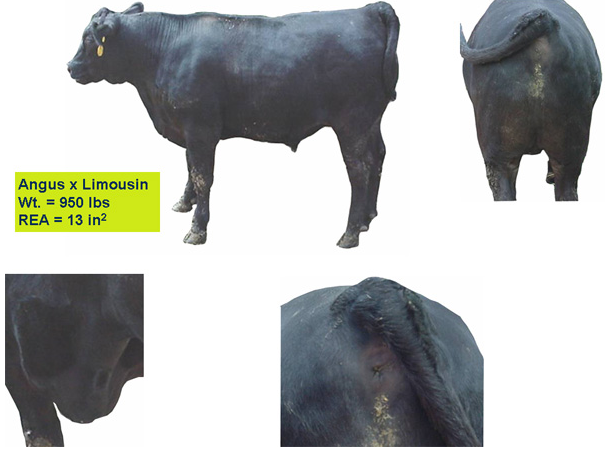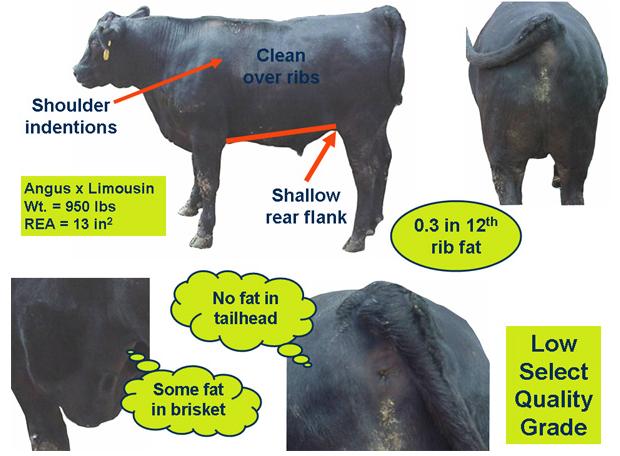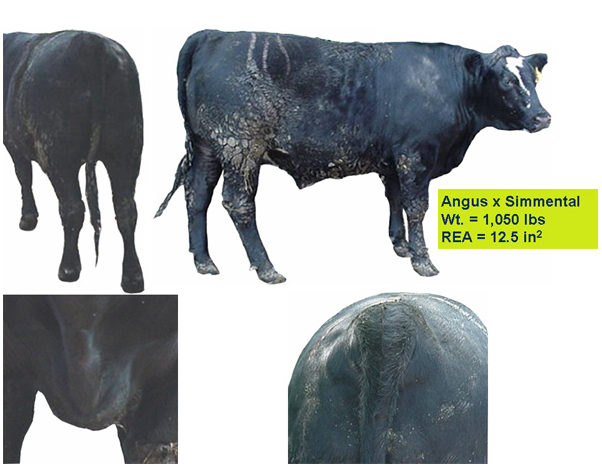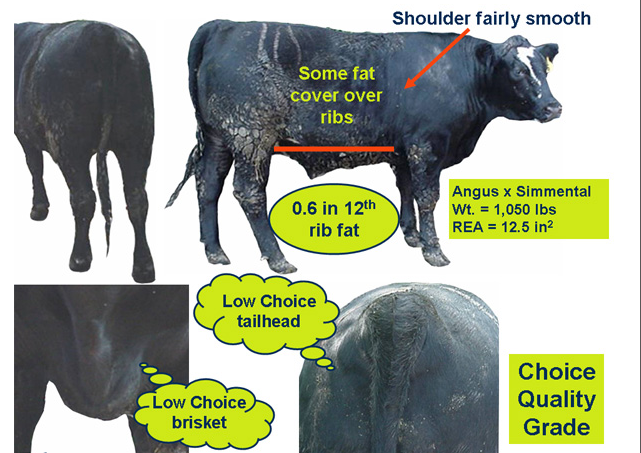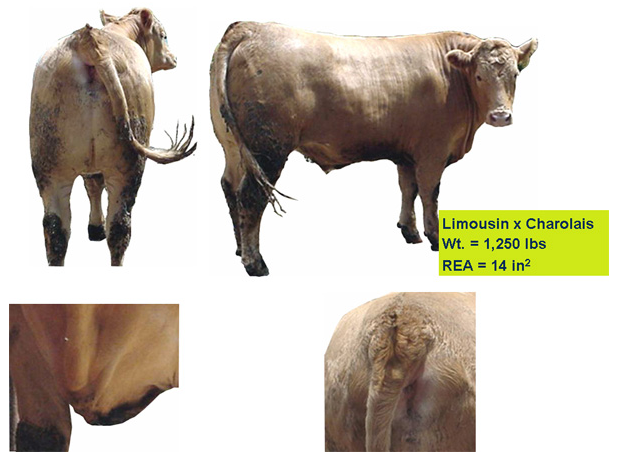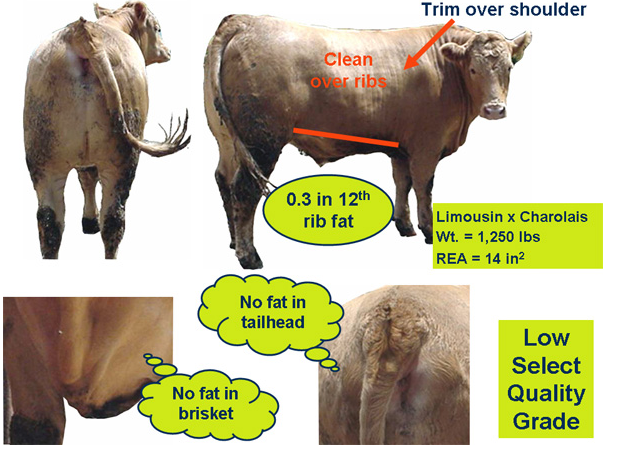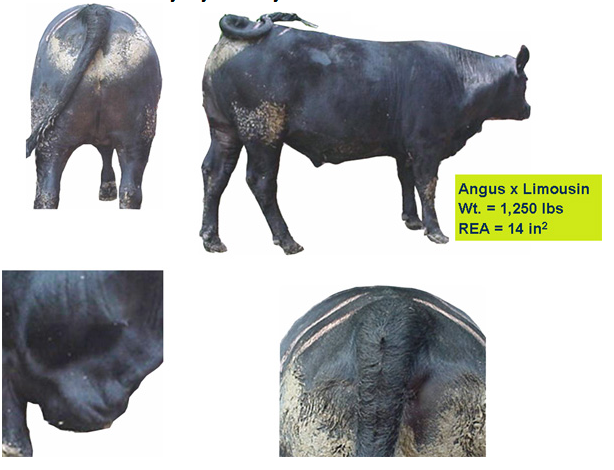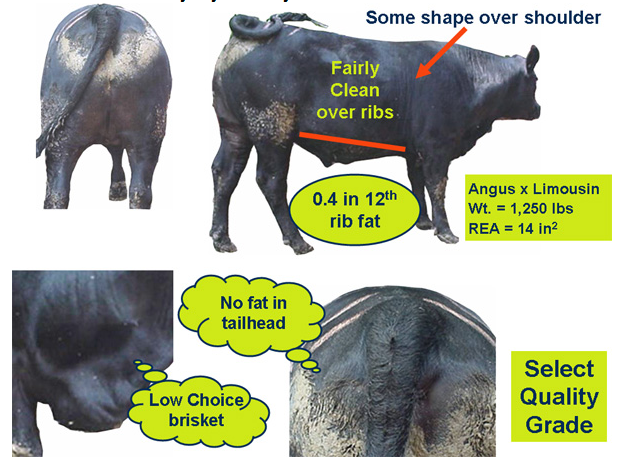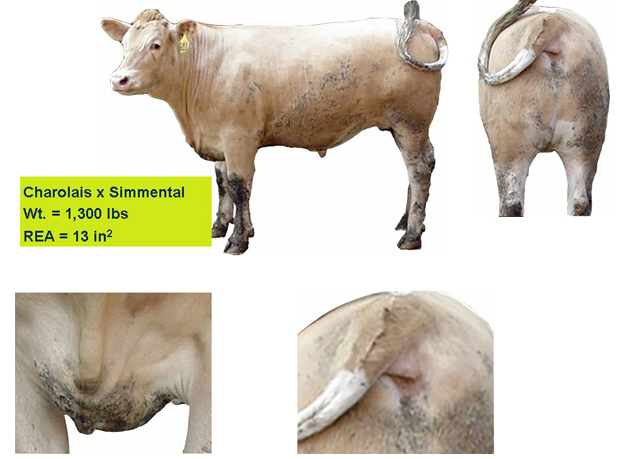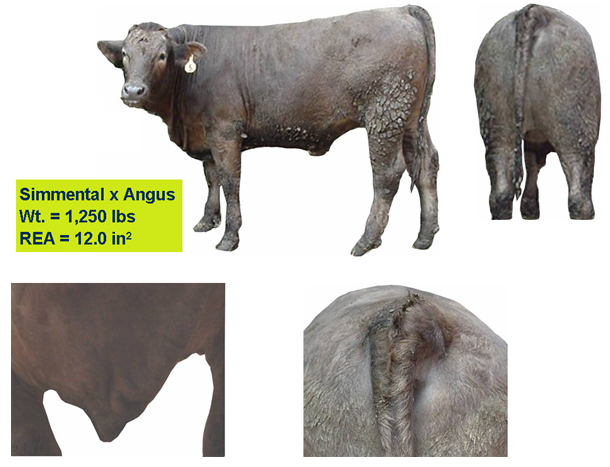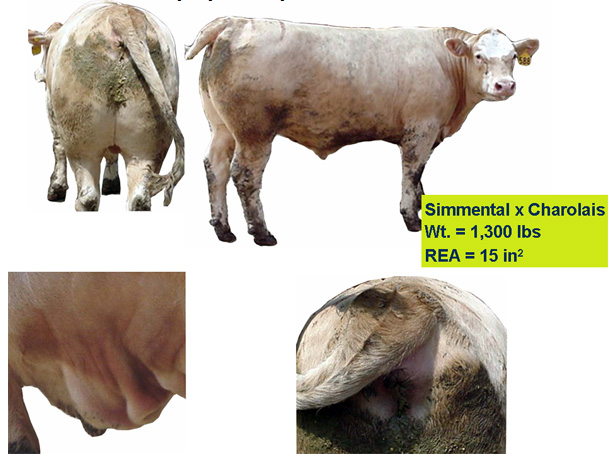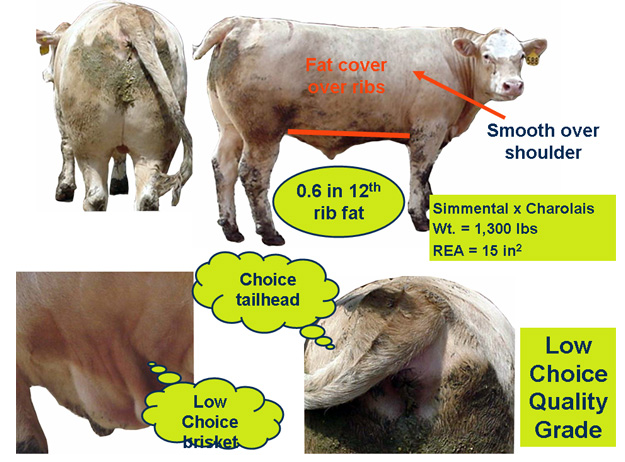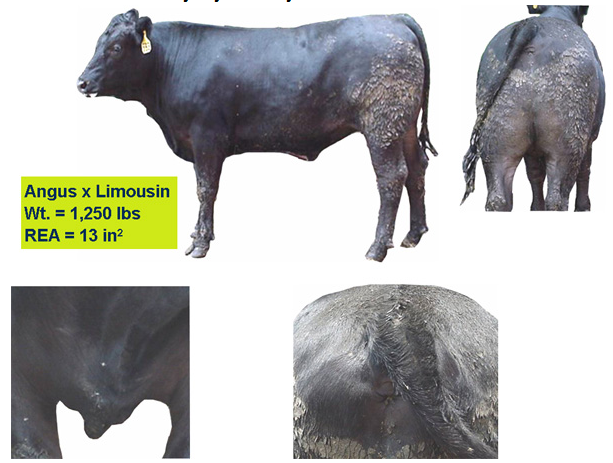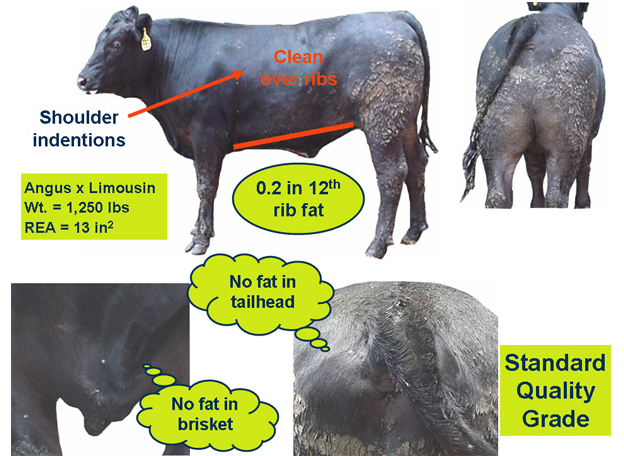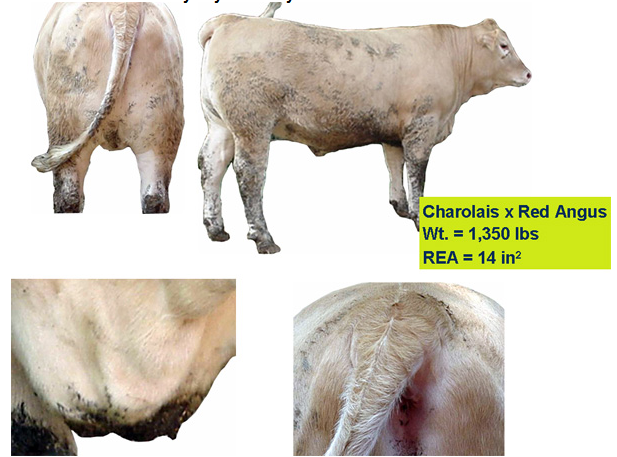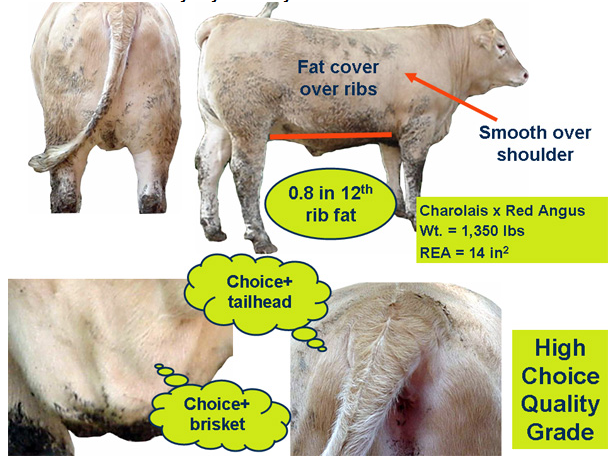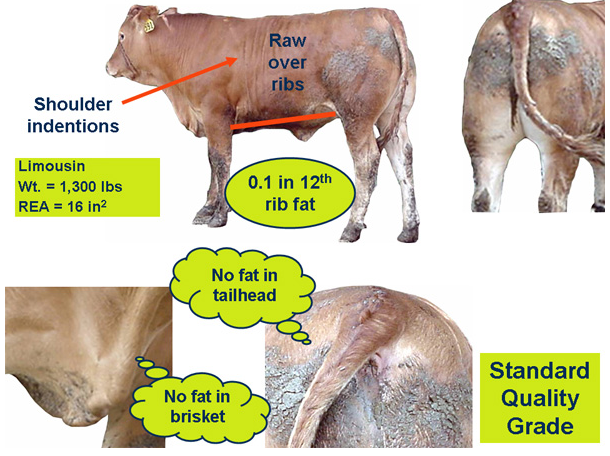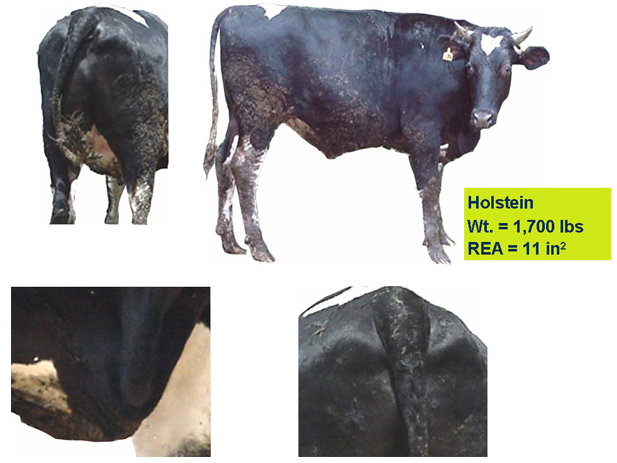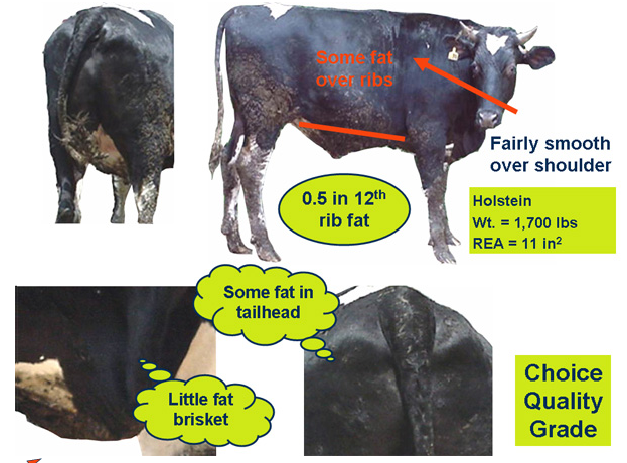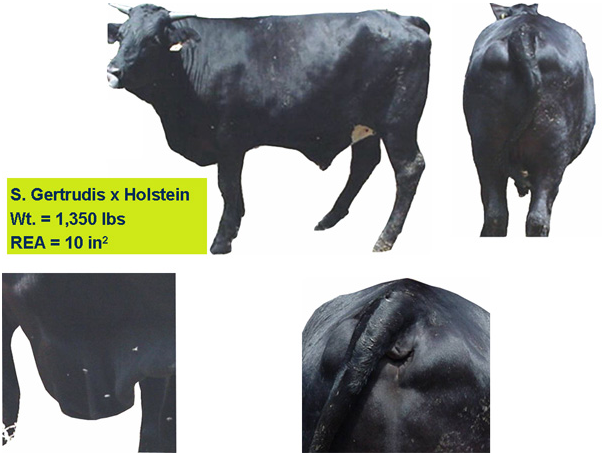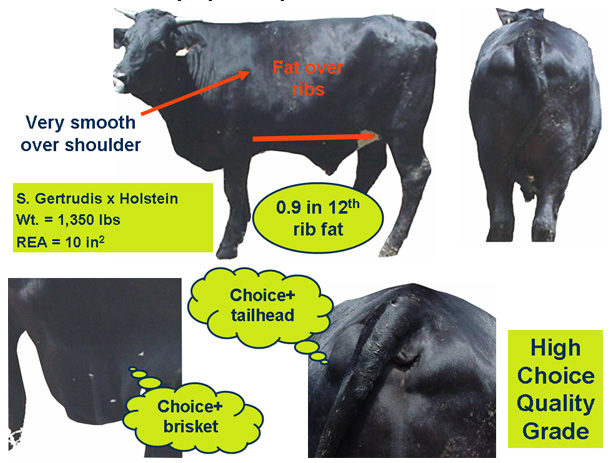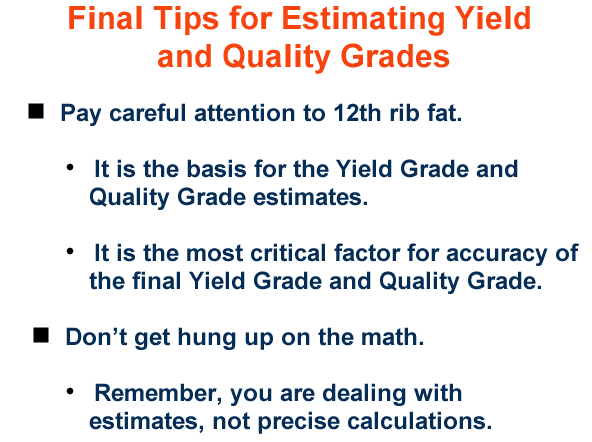Beef Cattle Discovery - Grading - Market Steers - Yield Grade and Quality Grade
Beef Cattle Discovery - Grading - Market Steers - Yield Grade and Quality Grade
What is a Yield Grade?
- A yield grade represents the amount (or yield) of boneless, closely trimmed, retail cuts taken from the following wholesale cuts of a beef carcass:
- Round
- Loin
- Rib
- Chuck
- Yield Grade is also referred to as "Cutability".
Yield Grade for Market Steers
#1 = Extremely lean and heavy muscled
#2 = Lean and muscular
#3 = Average msucle with finish
#4 = Fat and light muscled
#5 = Very fat and minimal muscling
How is Yield Grade Estimated?
- There are three (3) factors that are combined to calculate Yield Grade:
- 12th Rib Fat
- Rib Eye Area (REA)
- Percentage of Kidney, Pelvic, and Heart Fat (%KPH)
- A three (3) step process is used to evaluate these three (3) factors and estimate a Yield Grade.
Steps in Estimating Yield Grade
- Estimate 12th Rib Fat and establish a Preliminary Yield Grade (PYG).
- Evaluate REA against the average (or standard) and adjust PYG for muscling.
- Estimate %KPH and adjust PYG for %KPH and determine a final Yield Grade.
Step 1.
Estimate 12th Rib Fat and Establish PYG
- When estimating 12th Rib Fat, consideration should be given to:
- Depth of body
- Depth of rear flank compared to fore flank
- Indentions behind shoulder
- Finish over the ribs
- Fullness in the brisket
- Fat around the tailhead
- Cod fat
Establishing a Preliminary Yield Grade
- The 12th Rib Fat estimate determines the PYG for the market steer.
- Different levels of 12th rib fat correspond to a set PYG.
- Estimating 12th Rib Fat, and the subsequent establishment of the PYG, ar the most important steps in arriving at an accurate final Yield Grade.
Estimating Yield Grade
Step 2.
Evaluating REA and Adjusting PYG Based on REA
Evaluating Muscling
- PYG is adjusted based on the muscling a market steer possesses relative to muscling that is expected for steers of a given weight.
- Rib Eye Area (REA) is used as the muscle indicator, and is determined by evaluating muscling in the steer.
- The estimated REA for the market steer is then compared to the REA that is expected for steers of that weight, and PYG adjusted correspondigly up or down.
Estimating Yield Grade
Step 3.
Evaluating %KPH and Adjusting PYG Based on %KPH
Evaluating %KPH
- KPH is the internal carcass fat associated with the kidney, pelvic cavity, and heart.
- The weight of this fat is expressed as a precentage of the chilled carcass weight.
- %KPH has a direct correlation with the level of 12th Rib Fat.
- Adjustments for %KPH are based on the corresponding level of 12th Rib Fat.
Summary of Determining Yield Grade
Step 1. Estimate 12th Rib Fat and establish a Preliminary Yield Grade (PYG)
Step 2. Compare estimated REA to the standard and adjust PYG for muscling.
Step 3. Estimate %KPH based on 12th rib fat and adjust PYG for %KPG to determine a final Yield Grade.













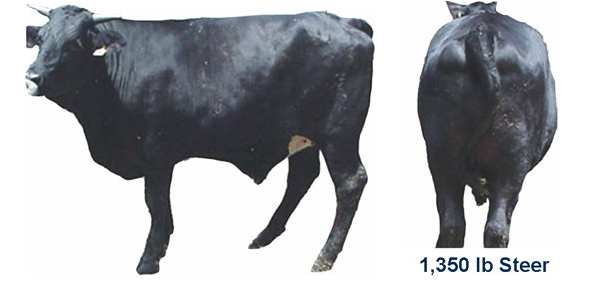


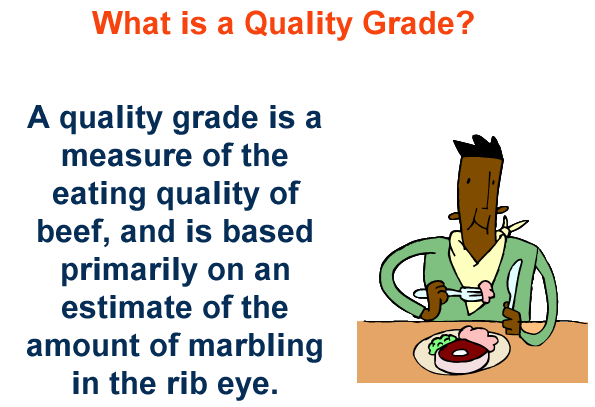
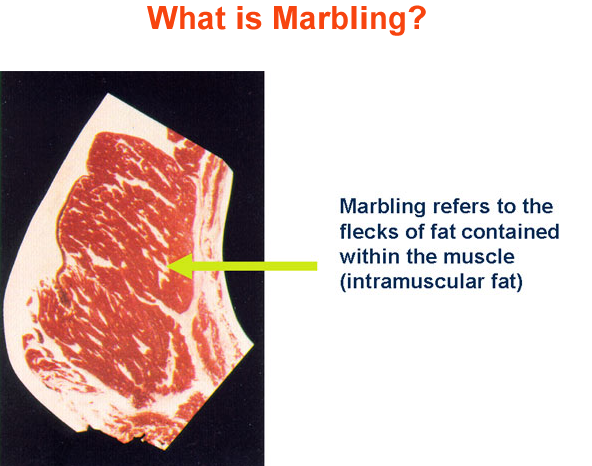
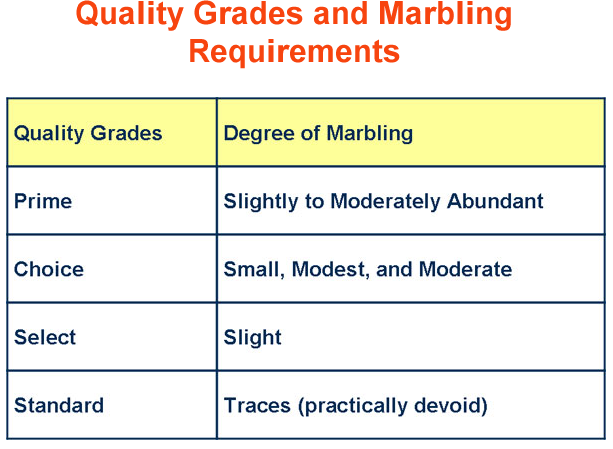
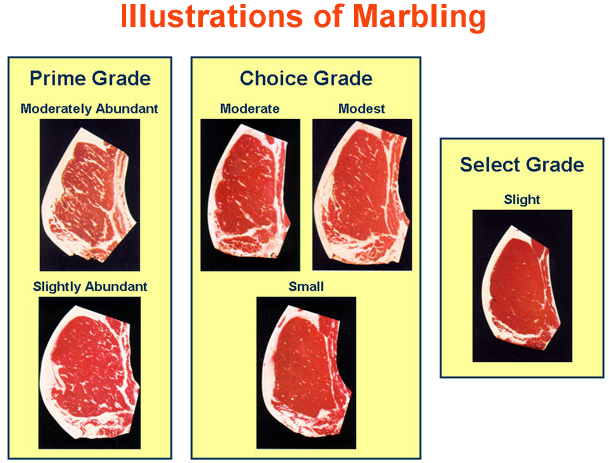
Estimating Marbling
- Degree of marbling cannot be directly measured in a live market steers.
- Two factors that influence a steer's ability to marble that should be considered when estimating the quality grade are:
- Amount of external fat
- Genetic (breed) effect
Evaluating External Fat
- The amount of external fat provides an indication of the amount of marbling a live market steer possesses.
- Important Point - steers progressively deposit fat from front to rear, and from top to bottom.
- An estimation of 12th rib fat, with special considerations for fat in the tailhead, brisket, and cod, provides a fairly good estimate of degree of marbling.
